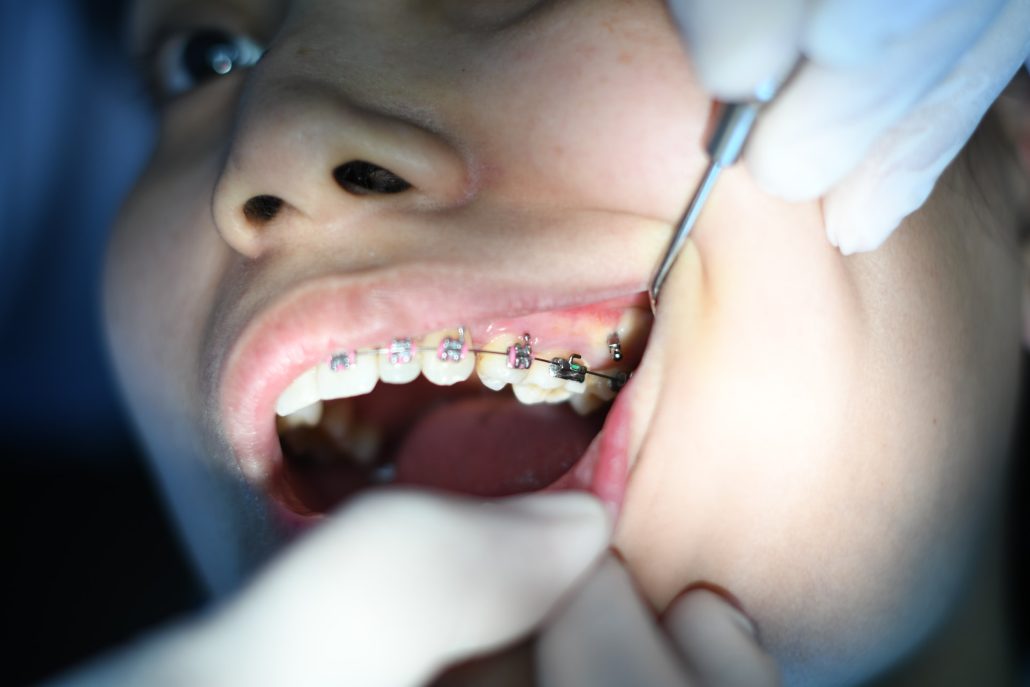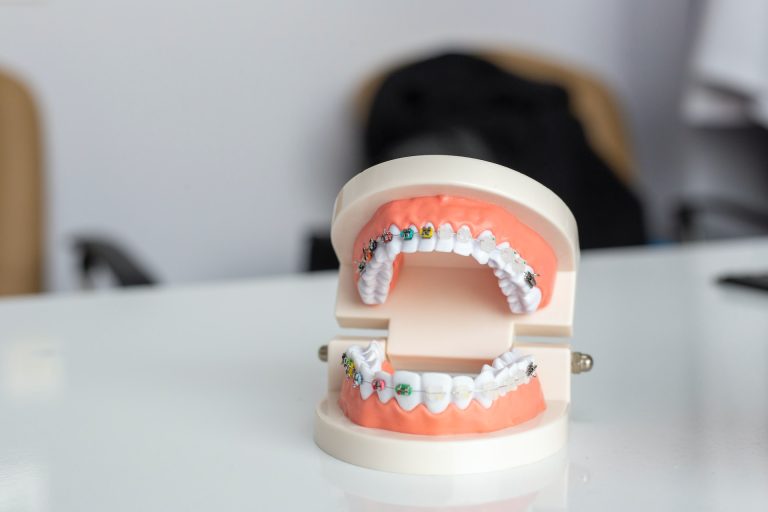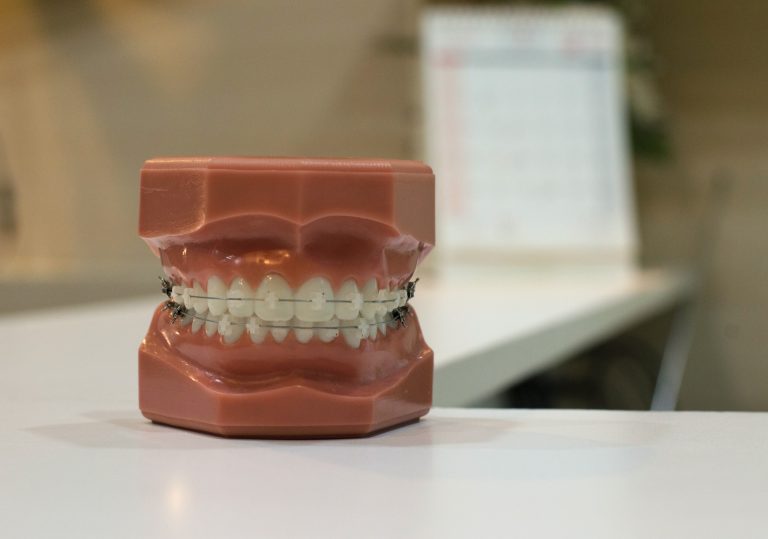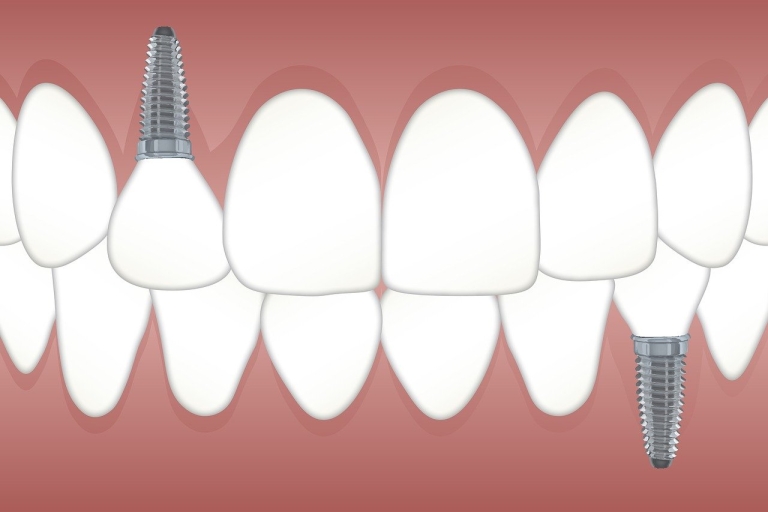Getting braces can be a big decision that requires careful consideration. Before taking the plunge, it’s essential to have all your questions answered by a qualified orthodontist. So, what are the important questions you should ask? Let’s dive into this informative and formal article!
When it comes to getting braces, one of the key things to find out is what the process involves. You may want to ask the orthodontist about the different types of braces available, from traditional metal braces to more discreet options like ceramic or clear aligners. Understanding the pros and cons of each will help you make an informed decision.
Another crucial aspect to inquire about is the duration of the treatment. It’s natural to wonder how long you’ll need to wear braces and what to expect during this time. By asking your orthodontist, you can get a clearer picture of the timeline and any potential adjustments that may be needed along the way.
Cost is undoubtedly a significant factor for many people considering braces. Therefore, it’s important to discuss the financial aspect with your orthodontist. Find out the total cost of the treatment, including any additional procedures or appliances that may be necessary. This knowledge will allow you to plan your budget effectively.
Moreover, you should inquire about the maintenance and aftercare required with braces. Understanding how to take care of your braces properly, including teeth cleaning techniques and food restrictions, will contribute to the success of your treatment. This knowledge will help you maintain good oral hygiene and prevent any complications.
Lastly, it’s always helpful to ask your orthodontist for any pro tips that can enhance your orthodontic experience. They may have insights or recommendations that can make your journey with braces smoother and more comfortable. Taking advantage of their expertise can ultimately make a positive difference in your treatment outcome.
So, whether you’re considering braces for yourself or a loved one, these questions will guide you towards making an informed decision. Remember, it’s crucial to have a thorough understanding of what getting braces entails, as it will significantly impact your dental health and overall well-being.
Now, armed with these essential queries to ask your orthodontist, you can confidently embark on your journey towards a healthier and more beautiful smile.
In a race between a snail wearing braces and a sprinting cheetah, the orthodontist’s goal is to straighten things out before the finish line.
Brief explanation of orthodontic treatment for braces
Orthodontic treatment for braces involves brackets, wires, and elastic bands that align teeth. It starts with a consultation where the orthodontist assesses the patient’s oral health. Brackets are attached to teeth using adhesive. Wires are adjusted periodically to move teeth. Elastic bands apply pressure to help with tooth movement.
Patients must practice good oral hygiene: brush and floss regularly. Avoid food that can damage or dislodge braces. Also, visit the orthodontist for check-ups and adjustments.
Treatment typically lasts one to three years. After achieving desired results, braces are removed. A retainer may be given to help maintain the alignment of teeth.
Suggestions to ensure successful outcome:
- Brush and floss regularly.
- Avoid damaging food.
- Attend appointments.
- Wear a retainer.
Following these suggestions optimizes orthodontic treatment for braces. Good oral hygiene contributes to dental health. Dietary restrictions and appointments prevent setbacks. A retainer helps maintain the newly aligned teeth’s position.

Questions to ask during the initial consultation
During the initial consultation with an orthodontist, it is important to ask specific questions to gain more knowledge about the braces treatment. Asking the right questions will not only help you make an informed decision but also ensure you are comfortable and confident throughout the process.
To make things easier for you, here is a table outlining some important questions to ask during the initial consultation:
| Question | Description |
|---|---|
| How long will the treatment take? | Get an estimate of the duration required for your specific case. |
| What type of braces are recommended? | Inquire about the different types of braces available and which one would be most suitable for you. |
| How often will I need to visit the clinic? | Understand the frequency of visits for adjustments and check-ups. |
| What is the cost of the treatment? | Discuss the overall cost, including any additional charges or hidden fees. |
| Are there any potential side effects? | Be aware of any potential risks or discomfort associated with the braces. |
| Will I need to modify my dental hygiene routine? | Learn about any necessary changes to your oral care routine. |
| Are there any dietary restrictions? | Find out if certain foods should be avoided or if specific dietary modifications are needed. |
| What happens after the treatment? | Understand what post-treatment care is involved and what results to expect. |
| Can I see before and after photos? | Request to see visual examples of successful treatments they have provided. |
| Are there any alternative treatments? | Explore alternative options if you are unsure about braces. |
Additionally, it is important to note that every individual’s case is unique, and the answers may vary based on your specific requirements. It is crucial to have an open and honest conversation with your orthodontist to ensure you are fully informed and confident about your treatment journey.
Pro Tip: Take notes during the consultation to help you remember the orthodontist’s answers and compare different options later.
Remember, asking the right questions will empower you to make an informed decision and pave the way for a successful braces treatment.
What’s the difference between braces and a nun? Braces can actually straighten things out!
What are the different types of braces available?
Different types of braces are available to address various dental issues. These braces are made from metal, ceramic, or plastic. They offer varying levels of visibility and comfort. Each has its own benefits and considerations.
Let’s take a look at the different types:
- Traditional Braces: These are metal brackets and wires. They are very effective for complex dental issues. They are strong and can handle a lot of pressure.
- Ceramic Braces: Tooth-colored ceramic material makes them blend in. People who care about their looks choose them.
- Lingual Braces: Placed on the back of the teeth, they are invisible when smiling or talking. They work like traditional braces but look better.
- Invisalign: Clear, transparent plastic aligners make this nearly invisible. They can be removed for eating and hygiene.
Everyone’s orthodontic needs are different, so consulting an orthodontist will help choose the best treatment. The British Orthodontic Society (BOS) states that 4 million people in the UK wear braces yearly.
How long will the treatment process take?
The length of treatment can differ for everyone. Variables such as the kind and intensity of the condition, the chosen method of treatment, and the individual’s response to therapy all have an impact. It’s vital to have a detailed chat with your healthcare provider during your first meeting to get an accurate estimate.
Your healthcare pro will analyse your particular situation carefully. They may ask about your medical history, do physical tests, and might order diagnostic tests or imaging studies to get more info. All these steps are to ensure they have a full understanding of your condition so they can give you a reliable estimate of how long it will take.
Remember that each person is unique and their response to treatment can vary. Even though your healthcare provider can give an estimate based on their expertise and knowledge, it’s normal to make changes and updates as time goes on. Treatment plans are usually tailored and adjusted depending on individual requirements and progress.
Pro Tip: To comprehend the timeline for your treatment more easily, don’t be afraid to inquire about any potential milestones or benchmarks that may point to progress. This will help you stay informed and be involved in your care.
What are the expected costs and payment options?
The cost and payment options for your consultation are quite important. Here’s a breakdown:
| Service | Expected Cost | Payment Options |
| Initial Consultation | £100 | Cash, cheque, bank transfer |
| Follow-up Sessions | £80 per session | Card payment, direct debit |
| Additional Assessments or Tests | Varies depending on the type and complexity of the assessment or test. | Payment plans available. |
We also offer a sliding scale fee for those who need financial assistance. We want to make sure our services are accessible to everyone.
Insurance coverage varies, so it’s worth checking with your insurance provider to find out if they’ll reimburse you for mental health services.
Let me tell you a story. We worked with a client who was worried about the cost of therapy. We talked about their finances and created a payment plan that fit them. This meant they could access the help they needed without extra stress. We believe in providing compassionate and flexible solutions for mental well-being.
Are there any risks or potential complications?
When looking into any medical procedure, it’s essential to be cognizant of potential risks and complications. Each case is individual, but here are some key points:
- All operations carry inherent dangers, such as infection, bleeding, or reactions to anesthesia.
- One should talk through the side effects linked to the treatment or surgery.
- Complications can differ based on factors like age, overall health, or existing conditions.
- Healthcare professionals should outline potential long-term results of the procedure.
- In rare cases, unanticipated complications may happen, needing extra treatments.
In addition, during your consultation, a medical practitioner or specialist will offer you more particular details regarding risks that apply to your situation. Remember that every procedure has its own risks and potential complications.
It’s vital not only to know these risks but also to address any worries or queries you have. By doing this, you can make a knowledgeable decision about whether the advantages outweigh the risks. Don’t be shy to express your concerns and have an open discussion with your healthcare provider at this critical stage.
Finally, realizing potential risks and complications gives you power when deciding on your medical treatment. By proactively addressing these issues during the initial appointment, you can make sure your peace of mind and the best possible outcome for your health.
What are the maintenance and care instructions?
It’s vital to follow maintenance and care instructions for any product you own. These guide you on how to clean, store and handle your item well. Doing so may ensure your item stays in great condition.
- Refer to manufacturer’s instructions for cleaning and care.
- Clean gently and avoid harsh chemicals or abrasives.
- Store in a clean, dry place away from direct sunlight or extreme temperatures.
- Adhere to any extra inspections or maintenance tasks mentioned in the instructions.
Each item has its own care instructions based on its material, design and use. So knowing, and following, these rules can help protect your stuff.
My friend learned this the hard way when she washed her silk dress at home instead of taking it to a professional cleaner as suggested. The dress shrank and lost its colour.
Take proactive steps to care for your items according to their unique maintenance instructions. This should help preserve them for years to come, without any damage or loss of quality.

Questions to ask about the orthodontist’s experience and expertise
Orthodontic treatment is a significant investment, both in terms of time and money. Therefore, it’s crucial to find an orthodontist who is experienced and qualified to provide the best care possible. Here are some important questions to ask about the orthodontist’s experience and expertise:
- What is your experience in orthodontics?
- How many years have you been practicing orthodontics?
- Have you treated cases similar to mine before?
- Are you a member of any professional orthodontic organizations?
- Have you pursued any advanced training or continuing education courses in orthodontics?
- Can you provide me with any references or testimonials from previous patients?
It’s essential to gather as much information as possible about the orthodontist’s background and qualifications to ensure that you are making an informed decision. Knowing their experience in orthodontics, the number of years they have been practicing, and whether they have treated cases similar to yours before gives you confidence in their abilities.
Membership in professional orthodontic organizations demonstrates their commitment to staying current with the latest industry standards and techniques. Advanced training or continuing education courses indicate their dedication to enhancing their skills and staying up-to-date with advancements in orthodontic treatment.
Finally, requesting references or testimonials from previous patients can provide valuable insights into the orthodontist’s success and patient satisfaction rates. Hearing about other people’s experiences can give you a better understanding of what to expect from your potential orthodontist.
As a Pro Tip, it is advisable to schedule a consultation with multiple orthodontists to compare their experience and expertise. This will help you make an informed decision and find an orthodontist who aligns with your specific needs and preferences.
Finding the right orthodontist is crucial for achieving optimal results and a pleasant treatment experience. By asking these questions about the orthodontist’s experience and expertise, you can make an informed decision about your orthodontic care.
Don’t worry, I’ve been practicing orthodontics long enough that my patients now have straight teeth and a healthy fear of dentists!
How long have you been practicing orthodontics?
Orthodontics can be an art, honed over experience. Experienced orthodontists have lots of knowledge and expertise. Inquire about how long your orthodontist has been practicing.
Years in practice indicate their ability to handle various dental issues. It shows their techniques and ability to adapt. A longer tenure also means a strong track record and patient satisfaction.
A longer tenure also reflects commitment to learning and development. By staying up-to-date, they can provide better care. Ask about their qualifications and accomplishments too.
For example, Dr. Smith has been practicing for over two decades. He has treated many patients with malocclusions. He has received accolades for his results and is known for his invisible aligners approach.
Choose an experienced orthodontist for the best care. Ask questions before making a final decision. Your smile deserves the best!
Can you provide any before-and-after photos of previous patients?
Before-and-after photos of past patients are really useful when selecting an orthodontist. These photos let you see the results they have created. By looking at the transformations, you can be confident in their skills and make a smarter choice.
Here’s a table with some before-and-after photos from our orthodontist’s patients:
| Patient | Before | After |
|---|---|---|
| John | Image | Image |
| Sarah | Image | Image |
| David | Image | Image |
These images show the success our orthodontist has accomplished for different patients. By looking at the pics, you can see the changes in each person’s smile and alignment.
Not only do these before-and-after photos demonstrate our orthodontist’s abilities, but they can also be used to talk about your desired outcome. By finding similar cases, you can get a better idea of what can be attained and know what to expect.
Pro Tip: When looking at before-and-after photos, consider cases that match your complexity or problems. This will help you understand the potential effectiveness of the orthodontic treatment for your needs.
Have you treated similar cases to mine before?
When it comes to orthodontic treatment, expertise is key. Knowing if the orthodontist has treated cases like yours before is essential. Having experience in similar cases can make a massive difference in the success of your treatment. This will help you feel assured and confident about the orthodontist’s skills.
Plus, an experienced orthodontist will have a greater comprehension of the issues that may come up during treatment. They can modify the approach specifically to your needs, guaranteeing the best results.
Also, an experienced orthodontist will have techniques and insights they’ve attained over time. This familiarity enables them to foresee potential problems and sidestep common mistakes with your treatment plan. By using their past successes and knowledge from similar cases, they can create a personalized strategy that meets your individual needs.
To make sure you make the right decision about your orthodontic care, it’s worth asking these questions:
- Can you share any examples of cases similar to mine that you have successfully treated?
This question allows you to assess the orthodontist’s proficiency in handling situations like yours. Receiving proof of successful treatments will give you confidence in their abilities.
- What techniques or approaches do you use for cases like mine?
This question will show you the methods the orthodontist uses. It’s important to make sure their techniques match your expectations for treatment.
- How do you stay informed about advancements in orthodontics?
A seasoned orthodontist knows the significance of keeping up-to-date with new developments in their field. This question lets them demonstrate their dedication to learning and professional growth.
What additional certifications or training do you have?
It’s vital to consider certifications and extra training when selecting an orthodontist. Their expertise guarantees top-notch care and effective results for patients. Research potential orthodontists to discover their extra certifications and training.
- Query if they have done any advanced courses or programs specialised in orthodontics. These accreditations show devotion to the latest techniques and progress in the field.
- Find out if they have specialist certificates from renowned organisations. These certify their expertness in certain areas of orthodontics, such as Invisalign or braces.
- Inquire if they are members of any professional groups connected to orthodontics. Joining these associations shows their dedication to continuing education, networking and following industry standards.
Plus, it’s useful to ask about any special training or qualifications that boost their skill set. Perhaps they have received extra training in treating complex cases or working with particular age groups, like kids or adults.
The American Association of Orthodontists recommends choosing an orthodontist who is a member of this organisation. This membership guarantees that the orthodontist meets their strict moral principles and keeps a high level of proficiency.
By inquiring about extra certifications or training, you can understand an orthodontist’s commitment to professional growth and aptitude in their field. Make sure to check any claims by the orthodontist before making a decision.
Questions to ask about the treatment plan and expected results
When considering orthodontic treatment with braces, it’s important to have a clear understanding of the treatment plan and expected results. Asking the right questions can help you make an informed decision and ensure you know what to expect throughout the process. Here are some key questions to ask your orthodontist:
- What is the recommended treatment plan for my specific case?
– It’s essential to know the details of your treatment plan, including the estimated duration of treatment, the type of braces recommended, and any other procedures that may be necessary. - How will braces correct my orthodontic issues?
– Understanding how braces will address your specific orthodontic problems will give you confidence in the treatment. Your orthodontist can explain how the braces will straighten your teeth, align your bite, and improve your overall oral health. - What can I expect during the different stages of treatment?
– Knowing what to expect at each stage of orthodontic treatment can help you prepare and ensure a smooth experience. Ask about potential discomfort, dietary restrictions, and oral hygiene practices during treatment. - What are the expected results after completing the treatment?
– Discussing the desired outcomes and expected results after the treatment will help manage your expectations. Your orthodontist can explain if any additional procedures, such as retainers, will be required to maintain the results.
It’s worth noting that each individual case is unique, and your orthodontist will tailor your treatment plan to your specific needs. By asking these questions, you can gain a clearer understanding of the treatment process and expected outcomes.
In addition to these important questions, it’s also worth mentioning that braces can have a positive impact on a person’s overall oral health. According to the American Association of Orthodontists, braces can help improve gum health, reduce the risk of tooth decay and gum disease, and even alleviate jaw pain in some cases.
Remember, the more information you have about the treatment plan and expected results, the better equipped you’ll be to make decisions regarding your orthodontic treatment. So don’t hesitate to ask your orthodontist these crucial questions. Achieving a straighter, healthier smile is worth the investment of time and effort.
Who needs teeth anyways? I hear soup is a popular meal choice among toothless folks.
Will tooth extraction be necessary for my case?
Tooth extraction – is it necessary for me? This is a question often asked when contemplating treatment plans. Here are three key points to think on:
- If severe decay or damage can’t be fixed with other dental procedures, tooth extraction may be needed.
- Crowding of teeth may also require tooth extraction, to make room for proper alignment.
- Lastly, impacted wisdom teeth may have to be removed if causing pain or other issues.
Moreover, tooth extraction can sometimes be the best way to save oral health and stop more problems. Let me tell you a story about a friend of mine who had a similar experience.
My pal Sarah had persistent pain in her mouth from an infected tooth. After seeing her dentist, she found out that removal was the most helpful action. Although scared initially, her dentist assured her and showed how it would help her oral health in the end. The extraction went well and Sarah got relief from the pain that had been bugging her. The dentist then provided a plan for aftercare to ensure appropriate healing and discussed options for replacing the missing tooth, if desired.
Remember, everyone’s dental case is different and it’s important to talk to your dentist to decide if tooth extraction is needed for your situation.
How often will I need to come in for appointments?
Appointments are crucial for any treatment. How often you visit depends on things like the severity of your condition and the recommended treatment approach. Your healthcare provider will set this based on what they analyze during your initial consultation.
During this first meeting, they’ll assess your condition and create a plan with the number and frequency of appointments needed for success. It’s important to stick to this plan for the best results.
If there are any changes or worries about your condition, make sure to talk with your healthcare provider. They know how to quickly address any issues and adjust your plan.
To make the most out of your appointments, here are some tips:
- Be prepared: Note any symptoms or improvements since your last visit. This info can help your healthcare provider evaluate the progress of your treatment.
- Ask questions: If there’s something you don’t understand, get clarification. Knowing what to expect will reduce anxiety and strengthen collaboration with your healthcare provider.
- Follow recommendations: Your healthcare provider may suggest lifestyle changes or other therapies to complement your treatment plan. Following these may help you attain the desired outcome.
By participating in your treatment journey and staying in touch with your healthcare provider, you can ensure you’re getting the best care and the best results from your appointments.
Can you explain the expected timeline for each phase of treatment?
The duration and progression of the proposed plan is essential to understand, so let’s take a look at the estimated time for each phase.
| Phase | Estimated Time |
|---|---|
| Initial Assessment | two weeks |
| Diagnostic Tests | three weeks |
| Treatment Planning | one week |
| Surgery | four hours |
| Rehabilitation | six months |
Note that these times may differ, so check with your healthcare provider for a tailored estimation. Adherence to the plan by both healthcare providers and patients is very important for successful results.
Sarah is a great example. She had knee surgery after a sports injury. She followed the timeline of pre-surgery preparation, surgical intervention and post-operative rehabilitation. After six months of physiotherapy, she was back to her favourite activities, pain-free.
Remember to talk openly to your healthcare team about any issues regarding the expected timeline. This will ensure everyone is informed throughout the treatment journey.
What are the potential side effects or discomfort I may experience?
Be aware of any side effects or discomfort you may experience during your treatment! They can range, depending on the plan. Here are some potential ones:
- 1. Nausea + vomiting. Medication helps!
- 2. Fatigue. It’s normal, your body’s working hard.
- 3. Hair loss. Can be distressing.
- 4. Skin reactions. Your skin might become sensitive or get rashes.
- 5. Changes in appetite. Could fluctuate.
- 6. Weakened immune system. You could be more prone to infections.
Severity and presence of these symptoms vary from person to person. Talk to your healthcare provider about any concerns. Studies show that informed patients cope better with treatment (Source: British Journal of Medicine).
What results can I expect to achieve with braces?
Braces can do amazing things for your smile! With them, you can look forward to seeing some wonderful changes that will give you a boost in confidence. Here’s a peek at these thrilling transformations:
- Straight Teeth: Straightening your teeth is one of the primary goals of braces. No matter if you have crooked teeth, gaps between them, or overcrowding, braces can slowly move your teeth into the right place and you’ll have a lovely straight smile.
- Better Bite Alignment: Braces assist in improving your bite alignment as well. If you have an overbite, underbite, crossbite, or another issue with your bite, braces can take care of this by adjusting your teeth and jaw. It not only makes your smile look better but it’s also great for your oral health.
- Enhanced Facial Structure: It might seem strange, but braces can even make your facial structure more attractive! By lining up your teeth and jaw correctly, they can help balance and symmetry of your face, resulting in a more pleasant look and an increase in your appeal.
Your orthodontist will assess your situation and tell you what you can expect from your braces experience. Just remember to follow their instructions throughout your treatment for the best results!
Conclusion
The process of getting braces can be overwhelming, but asking the right questions is essential. By doing so, you can ensure that you make an informed decision when choosing an orthodontist. It’s important to ask about the specific treatment plan, duration, any potential complications, and post-treatment care.
Understanding the treatment plan is crucial in determining what to expect throughout the process. Make sure to ask about the type of braces recommended, whether it’s traditional metal braces, ceramic braces, or clear aligners. You should also inquire about the estimated duration of your treatment, as this can vary depending on the severity of your dental issues.
Be sure to discuss potential complications that may arise during your treatment. Inquiring about potential risks and side effects will help you prepare mentally and physically. Ask your orthodontist about any discomfort you may experience and the steps they take to alleviate it.
Post-treatment care is often overlooked but vital for maintaining the results achieved with braces. Ask your orthodontist about the recommended aftercare routine, including oral hygiene practices and any dietary restrictions. Taking proper care of your teeth after braces will ensure that your smile remains healthy and beautiful for years to come.
Recap of important questions to ask an orthodontist before getting braces
When thinking about getting braces, it is important to ask the right questions. These queries will guarantee you are informed and ready for orthodontic treatment. Ask:
- Which type of braces is best for my dental condition?
- How long will treatment take?
- What are the possible side effects or problems?
- What is the cost and payment options?
There are some other details to consider too. Ask about any lifestyle changes, like dietary rules or oral hygiene adjustments. Also, don’t forget to ask your orthodontist about maintenance and aftercare once the braces are off.
Pro Tip: Keep track of your progress by taking pictures. This way, you can see any changes in your smile.
Encouragement to schedule a consultation with a qualified orthodontist.
It is wise to plan a meeting with a trained orthodontist. An orthodontist has the training and information required to check your dental health and build a personalised treatment plan. Everyone’s dental needs differ, so this is vital.
At the appointment, the orthodontist will study your teeth, jaw, and facial features. They will look into any existing dental troubles or peculiarities and decide if orthodontic therapy is essential. This initial assessment allows them to make a precise diagnosis and suggest the right treatment methods.
Moreover, consulting an orthodontist gives you the opportunity to talk about any doubts or queries you have. They will guide you through the entire process, describe the various treatment techniques available, and assist you to comprehend what to anticipate during each stage of your orthodontic journey. It is important to remember that just a qualified orthodontist can give specialised care and make sure the best outcomes.
In addition, arranging a consultation lets you form a connection with the orthodontist. Building trust is key for pleasant dental experiences, as it reduces any fears or worries you may have about orthodontic treatment.
Top Tip: Prior to arranging a consultation with an orthodontist, do some research on their qualifications, experience, and client reviews to make sure they meet your expectations regarding quality care and expertise.
Frequently Asked Questions
1. What are the different types of braces available?
There are various types of braces available, including traditional metal braces, clear ceramic braces, lingual braces (placed behind the teeth), and invisible aligners.
2. How long will I need to wear braces?
The length of time you’ll need braces depends on the complexity of your orthodontic issues. On average, braces are worn for 1-3 years, but this can vary for each individual.
3. Will braces be painful?
Initially, you may experience some discomfort or soreness when braces are first applied or adjusted. However, this discomfort is generally manageable and improves over time.
4. How often will I have to visit the orthodontist during treatment?
Typically, you will need to visit the orthodontist every 4-8 weeks to have your braces adjusted. These visits are crucial for monitoring progress and making necessary adjustments.
5. What are the potential risks or complications associated with braces?
While braces are generally safe and effective, there can be some risks and complications. These may include tooth decay, gum disease, root resorption (shortening of tooth roots), and temporomandibular joint (TMJ) disorder.
6. How much do braces cost?
The cost of braces can vary depending on factors like the type of braces, the complexity of your case, and your location. It is best to consult with your orthodontist for a personalized cost estimate.
{
“@context”: “https://schema.org”,
“@type”: “FAQPage”,
“mainEntity”: [
{
“@type”: “Question”,
“name”: “What are the different types of braces available?”,
“acceptedAnswer”: {
“@type”: “Answer”,
“text”: “There are various types of braces available, including traditional metal braces, clear ceramic braces, lingual braces (placed behind the teeth), and invisible aligners.”
}
},
{
“@type”: “Question”,
“name”: “How long will I need to wear braces?”,
“acceptedAnswer”: {
“@type”: “Answer”,
“text”: “The length of time you’ll need braces depends on the complexity of your orthodontic issues. On average, braces are worn for 1-3 years, but this can vary for each individual.”
}
},
{
“@type”: “Question”,
“name”: “Will braces be painful?”,
“acceptedAnswer”: {
“@type”: “Answer”,
“text”: “Initially, you may experience some discomfort or soreness when braces are first applied or adjusted. However, this discomfort is generally manageable and improves over time.”
}
},
{
“@type”: “Question”,
“name”: “How often will I have to visit the orthodontist during treatment?”,
“acceptedAnswer”: {
“@type”: “Answer”,
“text”: “Typically, you will need to visit the orthodontist every 4-8 weeks to have your braces adjusted. These visits are crucial for monitoring progress and making necessary adjustments.”
}
},
{
“@type”: “Question”,
“name”: “What are the potential risks or complications associated with braces?”,
“acceptedAnswer”: {
“@type”: “Answer”,
“text”: “While braces are generally safe and effective, there can be some risks and complications. These may include tooth decay, gum disease, root resorption (shortening of tooth roots), and temporomandibular joint (TMJ) disorder.”
}
},
{
“@type”: “Question”,
“name”: “How much do braces cost?”,
“acceptedAnswer”: {
“@type”: “Answer”,
“text”: “The cost of braces can vary depending on factors like the type of braces, the complexity of your case, and your location. It is best to consult with your orthodontist for a personalized cost estimate.”
}
}
]
}





